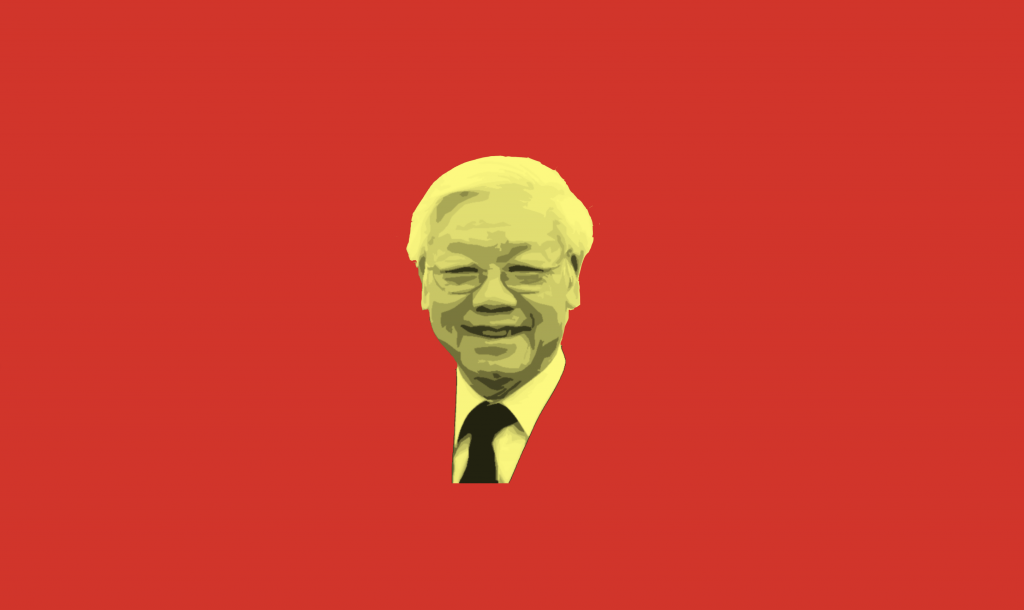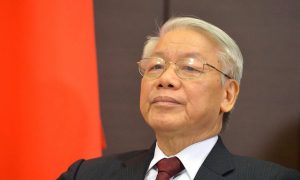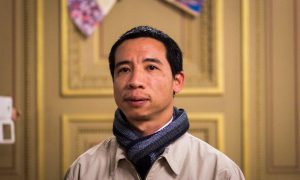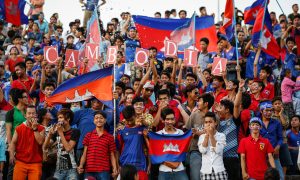Nguyen Tan Dung was the kind of politician anecdotes were told about. Take this one, reported by the New York Times’ Mike Ives last year:
Soon after becoming the American ambassador to Vietnam in 2007, Michael W. Michalak approached Nguyen Tan Dung, the country’s new prime minister, at a gala dinner and mentioned that human rights were among the American government’s highest priorities in Vietnam.
“You could see his face just freeze,” Mr. Michalak, now the senior vice president of the U.S.-Asean Business Council, recalled with a chuckle. Mr. Michalak quickly told Mr. Dung that he wanted to toast his health and make a friendly suggestion: The caterers should serve American beef at the next such diplomatic event.
“He just cracked up, and we started drinking vodka,” Mr. Michalak said. “And ever since then, at every one of these dinners, he always would make sure to have a shot of vodka with me.”
I ought to hasten away from this scene but it is revealing of how human rights are raised then hurriedly expelled from conversation, a reverse esprit de l’escalier that has come to typify America’s relationship today with Vietnam.
The fundamental point, though, is that there are no such stories told about Nguyen Phu Trong, the current General Secretary of Vietnam’s Communist Party. Maybe he has supped liquor with ambassadors at fancy galas but such occasions haven’t been told publicly. Neither, by most accounts, is there a modicum of wit, even gallows humour, found in him. He is, I am informed, mirthless and staid—in short, what one might expect from an ageing Communist apparatchik. And, arguably, what one might expect from a leader who wants to return the Party back to a time when decisions were made by consensus, by impersonal leaders of an impersonal party—a volte-face from where Dung was leading it. Indeed, the populist, charismatic, and most importantly well-supported (thanks to his fortunate patronage networks) former prime minister risked becoming bigger than the Party itself, possibly even leading it to where its communist cousins now find themselves: staid chapters in history books.
“Anything but Dung”
Going into the previous Party Congress, held in January 2016, there was much speculation about rival factions’ jostling for control, as is the wont of Vietnam-watchers. Alexander L. Vuving, for example, has long identified three distinct groups: “conservatives”, “rent seekers” and “modernisers”. Others preferred rival dialectical blocs between the “pro-China” and “pro-US,” But by far the most important grouping last year was the “anything but Dung” coalition, a term apparently coined by David E. Brown, a former American diplomat. Many predicted beforehand that Dung, having been prime minister since 2006, would move up to become Party general secretary. Instead, the “anything but Dung” coalition ensured that he not only failed to move up but was also removed from office. Trong, who was expected to step down as the incumbent general secretary because of age restrictions, was instead given permission to continue for another five years. Immediately, this was presented as a win for the “conservatives” and a loss for the “progressives.” It was more complex than that, however.
In a 2015 essay, Le Hong Hiep opined that the Party’s power structure at the time resembled “a reverse pyramid.” The most powerful political institution was the Central Committee (the largest body in terms of members), followed by the Politburo and, then, the office of Party general secretary. If true—and there were disagreements over Hiep’s opinion—it would’ve been a stark contrast to the late 1980s. At the time of Le Duan’s death in 1986, by far the most powerful body was either the Politburo or the office of Party general secretary. The change was not all Dung’s doing, but he played a major part in it. His power relied on a considerable patronage network he developed, no doubt aided by the new riches swirling around Vietnam. This network included swathes of the private sector and a legion of loyalists from important state-owned enterprises. (Many former SOE executives are now being prosecuted for graft charges after investigations by the Central Steering Committee for Anti-Corruption, an anti-graft body put under Trong’s control in 2012; it was previously controlled by the PM’s office). Dung added to this network a mass of provincial officials. “Dung’s important role in allocating state budgets to local governments alongside his good relationship with business, which normally maintains close ties with provincial leaders, also affords him a significant level of political loyalty,” Hiep wrote.
As a result, greater authority was consolidated within the prime minister’s office. And the Central Committee, becoming the most influential body, as Hiep asserted, was filled with his loyalists. Two incidents show just how much influence Dung wielded among Central Committee members. In October 2012, the Politburo apparently voted to oust him as prime minister (or, at the very least, severely discipline him over economic mismanagement, rumoured to be his involvement in state-owned shipbuilding firm, Vinashin, making multibillion dollar losses). Normally, he would have been expected to leave quietly. Instead, he fought and the Central Committee overturned the decision. “He cashed in political debts and won a stunning reversal of the Politburo’s decision at a [Communist Party’s] Central Committee meeting two months later,” David Brown wrote last year. Then, a few months after this, Trong backed two Party members—Nguyen Ba Thanh and Vuong Dinh Hue—for promotion to the Politburo. The Central Committee, however, instead selected its own candidates, thought to be favourable to Dung’s command.
Vietnam under Dung: patronage and personality
Scan over a good deal of media reports published around the time of last year’s Party Congress and your eyes will repeatedly come across the adjective “pro-business” before Dung’s name. Certainly, he was a business-friendly leader. But this doesn’t mean that Trong and co are “anti-business”. Shortly after the Party Congress, a Nikkei Asian Review staff writer claimed that while the personnel changes “will make for more democratic decisions, some argue that it will bog down reform and hinder flexible policymaking.” Democratic, here, must be taken loosely. A “democracy” of a few dozen voices, instead of a handful, doesn’t deserve the demos prefix. Nonetheless, the second observation is more accurate. It was likely an intention of the “anti-Dung coalition” to slow the pace of economic reform, lest it outpace the Party’s ability the reshape itself to fit in with the changes. The privatisation of SOEs is a good example. Privatise too quickly and it risks not just depleting state revenue, without the imposition of alternative forms to match the pace. It also undermines the enduring socialist philosophy. For privatisation to be compatible, an alternative narrative is needed (too quick, and no such narrative can be put in place).
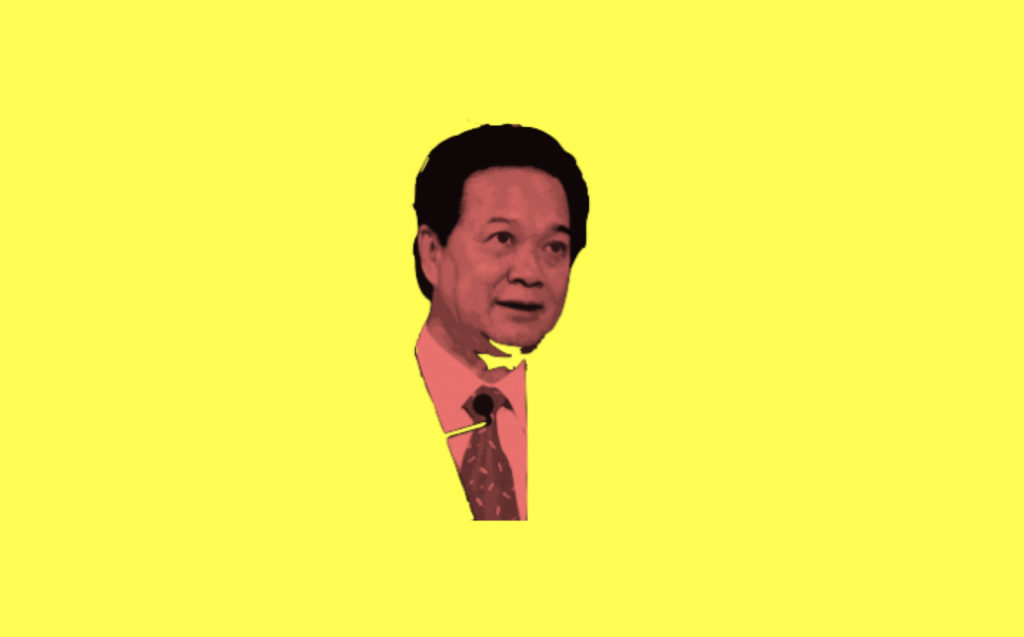
Another appellation some journalists chose to provide Dung was “progressive,” and a few even opted for “reformer.” The latter defies reality, if understood in political or social terms. Human rights deteriorated under Dung’s tenure and the pro-democracy movement was besieged. “Progressive” might be passable but only if in reference to foreign affairs. Certainly, Dung was far more willing to look to America, not China, for support, a distinction from previous leaders. Dung’s tenure, indeed, saw greater rapprochement with Washington, something his family exemplified. One son studied at George Washington University; another brought the McDonalds franchise to Vietnam. But how much this was because of Dung’s design or by natural forces is debatable. Some pundits predicted Vietnam’s relationship with the United States would taper off after Dung’s exit, a sign that he was the leading force. But that hasn’t been the case, even after Donald Trump withdrew America from the TPP. The current Prime Minister Nguyen Xuan Phuc became the first Southeast Asia leader to visit Trump’s White House, in May, where he pledged to allow American businesses more leeway in the economy. On a visit to Europe months later, Phuc pledged further economic reforms, which will open up Vietnam’s economy even more for foreign investors.
So Dung was hardly a progressive, and certainly no reformer. He was, however, as close to a populist leader Vietnam has seen in recent decades. As the youngest Vietnamese prime minister (56 years old when assuming office) he cut a stark contrast to his greyer colleagues, especially given his polished appearance. And his wanton anti-China rhetoric won him the support of much of the Vietnamese public. When anti-China protests erupted in 2014 Dung’s office sent a text message to millions of citizens. “The prime minister requests and calls on every Vietnamese to boost their patriotism to defend the fatherland’s sacred sovereignty with actions in line with the law,” it reportedly read. But such rhetoric also hampered the Party’s ability to deal with Beijing behind the scenes, as most negotiations with China are conducted. No doubt, some Party members also feared that encouraging any form of mass protest, even against China, was unwise in such a heavily repressed nation.
In any way, many Party grandees would have been concerned that Dung’s personalist appeal might foment a new wave of populist leaders. One example is Dinh La Thang, who was named the mayor of Ho Chi Minh City at last year’s Congress. He too was media savvy and prone to crowd-pleasing rhetoric. “Whenever he appears on media, he looks good. Dung was the same way,” the Diplomat quoted a source. Not only that, Thang is thought to have been a protégée of Dung’s and his ascension to the Politburo last year is rumoured to be the result of Dung’s promise to step down in return for his loyalists moving up. In May, however, Thang was voted out of the Politburo, the first person to be ousted since 1996, and sacked as HCMC’s Party leader. Officially, this was because of his responsibility for losing hundreds of millions of dollars in his previous role as general director of the state-owned PetroVietnam. Speculation, however, has it that he was a casualty of the anti-Dung purge now being carried out. Another possibility, though, is that like Dung, his style of leadership irked the traditionalists.
The last gasp of the old guard
Rather than a contest between “progressives” and “conservatives”, as intra-Party factions are often described, perhaps a better opposition would be between “populists” and “elitists”. Trong, in this respect, is the arch-elitist. In 1999, when a Politburo member, he described the Communist Party as “the intellect, the honour, the consequence of our time; the party is the embodiment of the wisdom, quality, the quintessence of the nation.” Dung’s populism, if left unchecked, might have veered worryingly towards a personality cult. Moreover, it was firmly against the Party’s traditions, which, as a committed ideologue, Trong ought to uphold.
In Trong’s eyes, the danger of one influential political figure consolidating power, so much so that the normal checks and balances within the Party were no longer functioning, wasn’t just a threat to his own interests. Dung, after all, prevented Trong from having his way on several occasions. More importantly, it could potentially endanger the Party itself. As a result, since Trong’s re-election as general secretary he has endeavoured to return the Party to its more traditional consensus-based style of leadership. This, in some fashion, is an ostensible contradiction; he has become a personality (or, rather, had to become one) in order to do away with personalities within the Party. That aside, he is not alone. Phuc is known as a competent coordinator and, like Trong, hardly a visionary.
The veteran British journalist Philip Bowring once wrote of Vietnam that “despite the dominance of a one-party state, consensus is highly valued and power is less centralised than in other Communist systems.” Indeed, Vietnam’s Communist Party is set apart from its socialist cousins by its concerted effort not to build personality cults, except for a heavily-crafted one for Ho Chi Minh, necessary during the 1980s as Vietnam moved away from socialism towards the free market. But this isn’t to say the public appearance of consensus has always reflected reality.
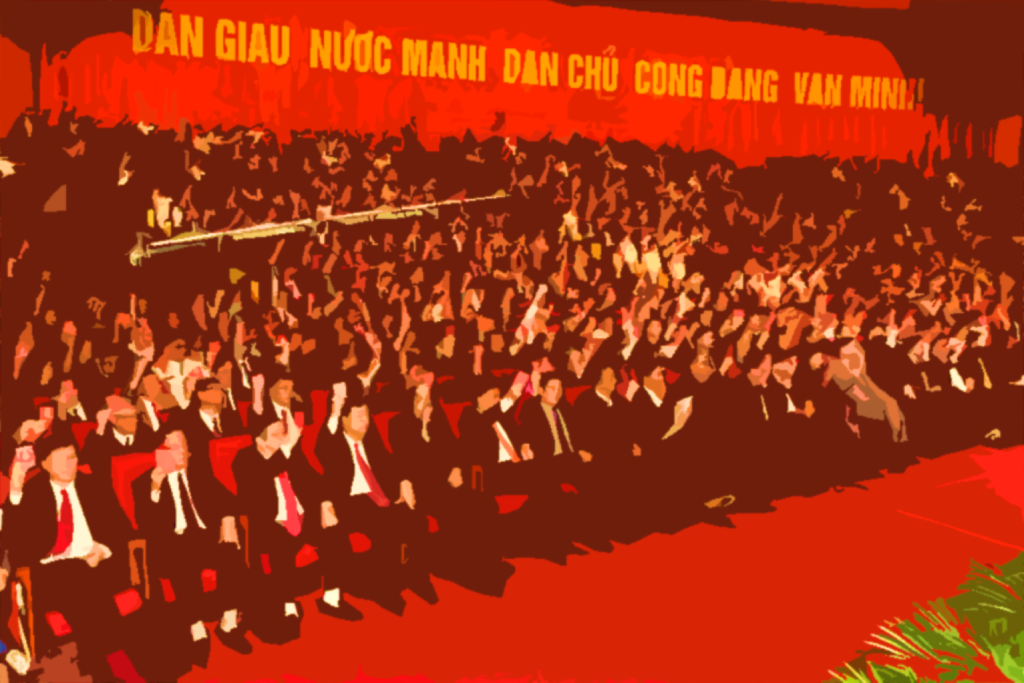
William J. Duiker, in Ho Chi Minh: A Life, writes that Ho was “not as dominant a personality as many other modern revolutionary leaders, such as Lenin, Stalin, or Mao Zedong; he appeared to lead by persuasion and consensus rather than by imposing his will through force of personality.” Even within the Vietnamese Communist Party, and despite the later philosophy constructed in his name, he was rather less eloquent in ideology and theory than the likes of Vo Nguyen Giap, Truong Chinh and, especially, Le Duan. In fact, Ho spent most of his autumn years mediating between the rival positions within the Party. In May 1969, four months before his death, he wrote a letter to colleges stressing that “unity is an extremely precious tradition of our Party and people.” He urged comrades, “from the Central Committee down to the cell,” that they “must preserve union and unity of the mind in the Party as the apple of their own eyes.” (I would recommend Thai Quang Trung’s 1985 book, “Collective Leadership and Factionalism: An Essay on Ho Chi Minh’s Legacy”, for more information on this period).
All good Communists understand dialectics. Ho hoped that the Party’s internal dialectic, at one time between the “North-firsters” and “South-firsters”, in Trung’s words, would be resolved by the “synthesis” of consensus. That same philosophy (and the same fear of what happens if it isn’t followed) is unquestionably the current administration’s intent. Trong’s consensus-building is not a simple purge of factional or alternative thinking. That would be impossible, and of the opposite of his intent. More accurately, it is a purge of members who pose a risk to the consensus. But, arguably, this has to do more with style and allegiances rather than ideology or outlook. Prime Minister Phuc is a good example. He was a deputy prime minister under Dung, and shares many of his predecessor’s beliefs in economic reform and relations with the US. But he lacks Dung’s charisma and, most likely, his desire to become a personalist figure at the head of an impersonal party.A last consideration is where this is all heading. The answer is likely 2021, when the next Party Congress takes place. An article in the Economist last year put it better than I will attempt:
[In 2021] a mass of Russian-speaking party members, brought up hating America, are due to retire. Their successors may well be Western-educated technocrats who understand that the party’s best hope of survival lies in making the economy more competitive, and in convincing young Vietnamese… that it has their interests at heart.
Given that the Congress 2021 will be so consequential, small wonder the Party’s elitists want to steady the course before it arrives. That means, for Trong, expunging personalities and upstarts who might see themselves, not the Party, as the future. One can imagine a figure like Dung existing in a political world where the Communist Party doesn’t. The same cannot be said for Trong.
 Facebook
Facebook  Twitter
Twitter  Soundcloud
Soundcloud  Youtube
Youtube  Rss
Rss 